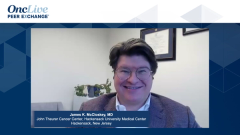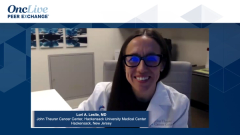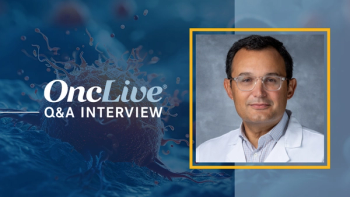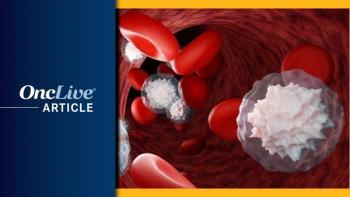
Challenges in Managing Adverse Events and Unmet Needs in Leukemia
Dr McCloskey highlights challenges in adverse event management and discusses unmet needs in the treatment of patients with leukemia.
Episodes in this series

This is a synopsis of a Peer Exchange series featuring James K. McCloskey, MD, and Lori A. Leslie, MD, of John Theurer Cancer Center, Hackensack University Medical Center.
In concluding remarks on managing adverse events and addressing unmet needs in leukemia, James K. McCloskey, MD, Chief of the Leukemia Division at the John Theurer Cancer Center, notes challenges stemming from the underlying disease versus treatment-related effects. With patients often hospitalized and cytopenic at baseline, excellent communication and nursing care is imperative for adverse event monitoring and mitigation. Each leukemia subset also carries distinct unmet needs from relapse prevention to optimal sequencing of emerging targeted therapies.
Specifically in acute myeloid leukemia (AML), determining sequencing of molecularly-targeted agents is now a pressing question with multiple viable options for certain genotypes. As Dr. McCloskey explains, figuring out the ideal order for integrating FLT3, IDH1/2, and other inhibitors into frontline versus relapse settings remains an open need. Additionally, real-world data from community practices will grow increasingly important for translating clinical trial findings, like proper venetoclax dose reductions, into everyday care. While academic centers have optimized protocols, disseminating best practices into average clinics nationwide remains vital for patient benefit.
Overall, addressing adverse events and real-world evidence generation represent two cross-cutting needs as leukemia treatments rapidly advance. But with a proliferation of targets and therapeutic modalities on the horizon, the future is bright. Dr. McCloskey thanks attendees for joining this timely discussion around ASH 2022 data and the newly approved and emerging agents primed to transform patient outcomes across the leukemia landscape. By learning from prior challenges and leveraging real-world data, clinicians can collaboratively usher in a new era of practice-changing progress for blood cancer patients in need.
*Video synopsis is AI-generated and reviewed by OncLive editorial staff.





































